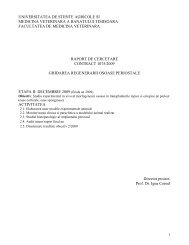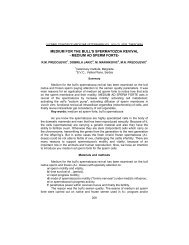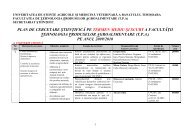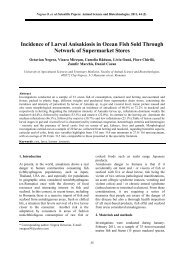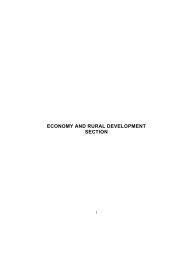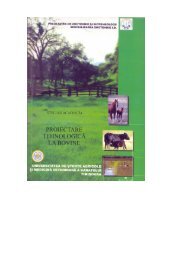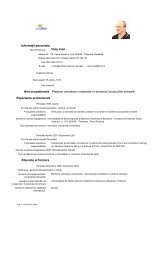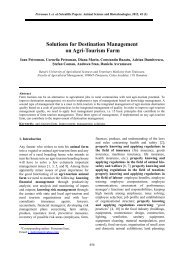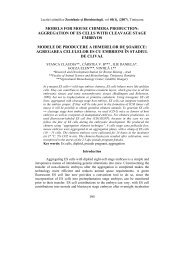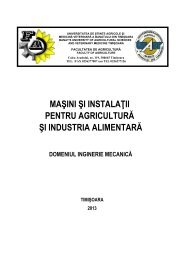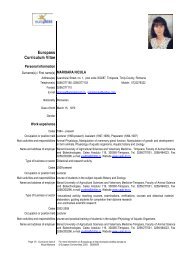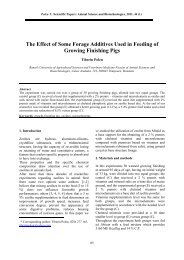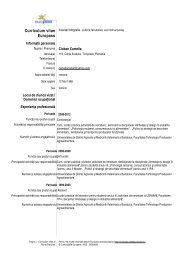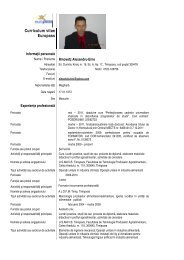journal of linguistic studies
journal of linguistic studies
journal of linguistic studies
You also want an ePaper? Increase the reach of your titles
YUMPU automatically turns print PDFs into web optimized ePapers that Google loves.
THE WORDLISTS PROJECT: AN EXAMPLE OF EP RESEARCH<br />
There are a number <strong>of</strong> strands <strong>of</strong> research in the English Pr<strong>of</strong>ile programme, and one<br />
<strong>of</strong> our challenges is to pull them into a coherent whole during the next several years. One<br />
example is a vocabulary project, the EP Wordlists.<br />
The Wordlists provide a complete searchable listing <strong>of</strong> the words and phrases in<br />
English that are considered to be within the CEF’s first four levels: A1 to B2. Levels C1<br />
and C2 will be researched and compiled during 2010-11. The Wordlists <strong>of</strong>fer reliable<br />
information at word and sense level, based on analysis <strong>of</strong> word frequency and learner use,<br />
using corpus data, as well as other sources including Cambridge dictionaries, the<br />
Cambridge ESOL vocabulary lists and classroom materials. There are two versions, one<br />
in British English and one in American English. They have pronunciation audio support,<br />
and are fully searchable by usage, grammar, prefix / suffix and topic within a single CEF<br />
level or across levels.<br />
The Wordlists will be available on subscription in January 2011, and Cambridge<br />
University Press is developing materials that are informed by the Wordlists that will be<br />
available then as well. In the meantime, a preview version <strong>of</strong> the Wordlists (letters D, J<br />
and K) is available on the website, as well as a new Word <strong>of</strong> the Week feature.<br />
COMMUNITY<br />
The English Pr<strong>of</strong>ile community involves a wide range <strong>of</strong> educational establishments<br />
(schools, universities, private language schools), as well as publishers, assessors, research<br />
centres and key education pr<strong>of</strong>essionals. These various organisations hold a wealth <strong>of</strong><br />
experience and knowledge <strong>of</strong> all aspects <strong>of</strong> language teaching and learning from the<br />
classroom to the exam situation to the workplace. However we always need more<br />
members! In particular we are looking for people with access to students who can help us<br />
collect the data we need.<br />
Teachers from around the world are contributing samples <strong>of</strong> their students’ written<br />
and spoken output to English Pr<strong>of</strong>ile. At the same time we are collecting information<br />
about the learners and their educational contexts (teachers, class materials etc.) that will<br />
help us understand the relationship between, for example, the age when students start<br />
learning English and their progress through the CEF levels.<br />
EP has developed an innovative online data collection tool to collect this data.<br />
Teachers who sign up for data collection are given an account on our website, so that<br />
their students can sign in, fill in a questionnaire about their background in English<br />
language learning, and also complete between 2 and 4 short written tasks. This process<br />
can be completed as a classroom activity, or as homework. It takes around 50 minutes,<br />
and each student who completes the process has their name entered in a monthly prize<br />
draw to win 50 Euros, or 50 Euros worth <strong>of</strong> books from Cambridge University Press.<br />
Each school, university etc that signs up for data collection becomes a member <strong>of</strong><br />
English Pr<strong>of</strong>ile, and teachers there will be kept informed about our progress; the latest<br />
developments in EP research, and new products (such as the Wordlists) as they become<br />
available. They will also be invited to attend EP events where they get the chance to give<br />
us feedback and make comments and suggestions about EP’s future activities. These<br />
events take two forms; firstly we will be running a series <strong>of</strong> workshops across Europe,<br />
where we’ll be looking at issues such as how to assess a student’s work in terms <strong>of</strong> the<br />
90



